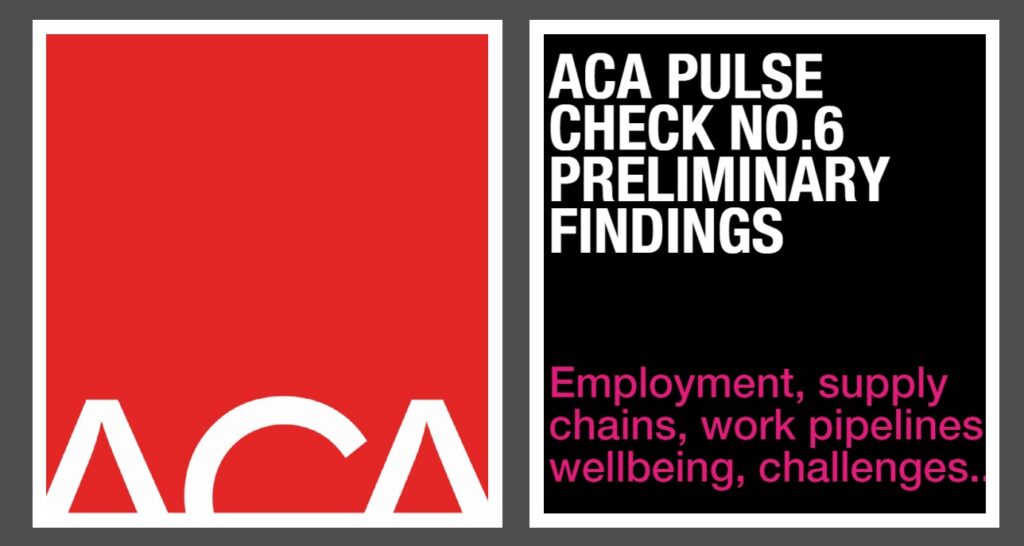ACoP member Association of Consulting Architects (ACA)’s latest Pulse Check survey, its 6th since the pandemic, reveals startling impacts on architectural practices and the wider industry.

Building on the previous five Pulse Checks, this survey helps create longitudinal knowledge about the impact of COVID-19 and the architectural profession’s response; from changing working arrangements, skills shortages, a tight employment market and wellbeing pressures, reflecting a profession that is, on the whole, very busy. The findings are also very topical in relation to the Jobs and Skills Summit.
At a high level, the key findings provide invaluable insight across a range of current topics. They reinforce concerns in relation to employment conditions, supply chain issues, the increasing costs of building materials and the skills and labour crisis across the industry.
They reveal the increasing cost of doing business, and the mismatch between this and business incomes, which have not risen at the same pace. They point to the impact all of this is having on the mental wellbeing of professionals – exhaustion, fatigue and the ongoing uncertainty of things.
The survey also confirms the extensive changes within architectural workplaces, following from the experiences of the pandemic. Flexibility is now both the norm and the future for two-thirds of responding practices. The pandemic has also been a catalyst for many to rethink professional priorities, business models and how they practice.
These are all issues that have far reaching impacts beyond just the architectural profession. This data has the potential to inform conversations about employment and labour force in relation to the hottest event in town – tomorrow’s Jobs and Skills Summit.
ACA’s CEO, Angelina Pillai, who is also ACoP’s head of diversity, culture and inclusion warns that “governments need to respond swiftly to the crippling impact of the rising costs of doing business in Australia today as the findings prove that there are consequences affecting other professional sectors such as project management, human resources, procurement and construction in general, not to mention challenges with local councils, State governments and other consultants”.
For more details of these preliminary findings, head to the ACA website.